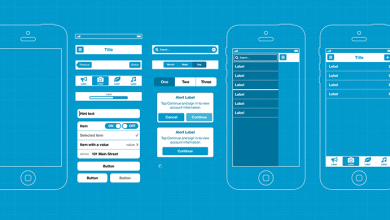Hybrid Cloud Solutions: Maximizing Efficiency and Flexibility with Cloud Storage

In today’s business environment, the adoption of cloud technologies has become a strategic necessity for many organizations. With the need to scale operations, reduce costs, and improve performance, cloud solutions provide a clear path to success.
However, one of the most compelling approaches to cloud adoption is the hybrid cloud model, which combines the benefits of both public and private cloud infrastructures. By offering the flexibility to leverage both types of clouds, businesses can tailor their cloud environment to their specific needs.
At the core of any successful hybrid cloud deployment is cloud storage, a crucial component that allows organizations to store and manage vast amounts of data securely and efficiently.
This article explores how hybrid cloud solutions can optimize your IT strategy, the integral role of cloud storage, and the key advantages of implementing a hybrid approach in your organization.
Top 10 Hybrid Mobile App Development Frameworks
Understanding Hybrid Cloud Solutions
Hybrid cloud solutions refer to an IT environment that integrates private and public cloud services, allowing data and applications to be shared between them. This integration enables businesses to manage workloads and data across multiple environments, depending on their security, cost, and performance needs.
In a hybrid cloud environment, businesses can retain control over sensitive data by storing it in private clouds while taking advantage of the scalability and cost-effectiveness offered by public cloud services for less critical workloads.
This combination offers businesses the agility and scalability they need without sacrificing security or compliance.
Key Characteristics of Hybrid Cloud Solutions
- Flexibility: The hybrid cloud model enables businesses to move workloads and applications between private and public clouds, optimizing performance and cost-efficiency as needs change.
- Cost Efficiency: With hybrid cloud solutions, businesses can scale their IT infrastructure more affordably by using public cloud resources for non-sensitive data while maintaining control over critical applications and data on private clouds.
- Security: A hybrid cloud approach allows businesses to store sensitive data in private clouds, ensuring that compliance requirements are met while still utilizing public cloud services for scalable compute resources and data storage.
- Scalability: Hybrid cloud environments allow businesses to scale cloud resources quickly based on demand, providing the flexibility to handle fluctuating workloads.
The Role of Cloud Storage in Hybrid Cloud Solutions
Cloud storage is a fundamental aspect of hybrid cloud solutions, serving as the mechanism by which businesses store, access, and manage their data.
In a hybrid cloud environment, cloud storage is often utilized to handle both sensitive and non-sensitive data in different cloud environments, ensuring that the organization’s data management strategy aligns with its security, performance, and budget requirements.
Cloud storage in a hybrid environment is particularly valuable for businesses that need to balance regulatory compliance and data security with the flexibility and scalability of public cloud storage.
By using a hybrid approach, companies can optimize their storage solutions to meet specific business needs, such as enhanced security for sensitive data or reduced storage costs for non-critical applications.
Key Benefits of Hybrid Cloud Solutions with Cloud Storage
Adopting a hybrid cloud strategy that integrates cloud storage offers several significant benefits for businesses. Let’s examine the advantages in more detail:
1. Increased Flexibility and Agility
One of the key advantages of hybrid cloud solutions is the flexibility they provide. Businesses can choose to store sensitive data in a private cloud, where they have full control over access and security measures, while utilizing the public cloud for less sensitive data that requires more scalable resources.
This flexibility ensures that businesses can optimize their cloud environments for performance, cost, and security, depending on the nature of the workload.
In terms of cloud storage, hybrid cloud solutions provide businesses with the ability to store data across multiple environments, ensuring that it is easily accessible when needed.
This flexibility makes it easier to scale operations and adapt to changing business requirements, such as handling increased data loads or adjusting to seasonal demand.
2. Cost-Effective Storage Solutions
Cost efficiency is a significant driver for businesses looking to adopt cloud storage solutions. Public cloud storage typically operates on a pay-as-you-go model, which means businesses only pay for the storage capacity they use.
This makes it an ideal option for non-critical data or applications that don’t require the stringent security measures of a private cloud.
By combining public cloud storage for less sensitive data and private cloud storage for critical information, businesses can optimize their storage costs.
The ability to scale storage resources as needed, while avoiding the upfront capital expenditures associated with on-premise storage solutions, makes hybrid cloud storage a cost-effective strategy for businesses looking to reduce infrastructure costs.
3. Enhanced Security and Compliance
Security is a top concern for businesses that rely on cloud storage. Hybrid cloud solutions provide an effective way to address security concerns by allowing businesses to store sensitive or regulated data in private cloud environments, where they can implement strong access controls, encryption, and other security measures.
Meanwhile, less sensitive data can be stored in public clouds, which are typically more cost-effective.
For businesses in industries such as finance, healthcare, and government, regulatory compliance is a crucial factor. Hybrid cloud environments enable businesses to meet the compliance requirements by keeping sensitive data in private clouds, ensuring that they adhere to data privacy regulations such as GDPR, HIPAA, and others.
Furthermore, the ability to encrypt data both in transit and at rest within the cloud ensures that businesses can mitigate the risks of data breaches, securing their data while it’s stored and transferred between cloud environments.
4. Scalability to Support Growing Data Needs
With the exponential growth of data, scalability is becoming a critical factor for businesses in choosing their cloud solutions. Cloud storage provides businesses with virtually unlimited storage capacity, making it easier to store large volumes of data without the need for costly on-site hardware.
Hybrid cloud solutions allow businesses to scale storage capacity up or down as needed. Whether a company is experiencing a period of growth or going through seasonal fluctuations in demand, hybrid cloud storage enables them to adjust their cloud infrastructure quickly without the need for significant capital investments.
By leveraging both private and public cloud resources, businesses can achieve the scalability they need while maintaining control over the types of data stored and ensuring that performance is optimized across different workloads.
5. Business Continuity and Disaster Recovery
Ensuring business continuity in the event of a disaster or system failure is a top priority for organizations. Cloud storage solutions, especially within hybrid cloud environments, play a critical role in disaster recovery plans.
Data stored in the cloud is protected against physical disasters such as fires, floods, or hardware failures, as it is housed in geographically dispersed data centers.
A hybrid cloud approach allows businesses to back up critical data to a private cloud while using public cloud storage for less mission-critical data. In the event of an outage or data loss, businesses can quickly recover data from their cloud storage systems, minimizing downtime and ensuring continuity.
Furthermore, cloud storage providers often have built-in redundancy, backup, and replication features, ensuring that data is always available and recoverable, even in the event of a failure in one of the cloud environments.
Why Your Organization Must Care About Hybrid Event?
Implementing Hybrid Cloud Solutions with Cloud Storage
To take full advantage of hybrid cloud solutions, businesses need to develop a clear strategy for integrating both private and public cloud environments with cloud storage. Here are a few steps to help you implement a successful hybrid cloud storage strategy:
1. Evaluate Your Data Needs
Begin by evaluating the types of data you need to store and manage. Identify which data is sensitive or subject to compliance regulations and needs to be kept in a private cloud.
For other, less critical data, consider using public cloud storage. This evaluation will help you design a storage architecture that balances cost, security, and performance.
2. Select the Right Cloud Providers
Choosing the right cloud providers for your hybrid environment is crucial. Look for providers that offer seamless integration between public and private clouds, strong security features, and scalability.
Many cloud service providers offer hybrid cloud solutions, so it’s important to assess their offerings and choose the one that best fits your needs.
3. Plan for Security and Compliance
Security and compliance should be top priorities when implementing a hybrid cloud solution. Ensure that data stored in the cloud is encrypted and protected with access controls.
For compliance, ensure that both public and private clouds meet the necessary industry regulations and that data is handled in accordance with applicable laws.
4. Monitor and Optimize
Once your hybrid cloud solution is in place, continuously monitor the performance of your cloud environments. Use cloud management tools to track resource usage, security vulnerabilities, and costs.
Regularly assess whether your cloud infrastructure is meeting your business needs and make adjustments as necessary.
5. Test Disaster Recovery Plans
Ensure that your disaster recovery plans are in place and that backups are performed regularly. Test your recovery processes to ensure that data can be restored quickly and efficiently in the event of a failure.
Rackpeople: Your Partner for Hybrid Cloud Solutions and Cloud Storage
At Rackpeople, we specialize in providing businesses with tailored hybrid cloud solutions that optimize storage, performance, and security. Our cloud storage solutions are designed to support the unique needs of your business, helping you strike the right balance between public and private cloud environments.
Whether you’re looking to migrate to the cloud, improve disaster recovery, or enhance security and compliance, Rackpeople offers the expertise to guide you through the process. We work with you to create a flexible, scalable, and cost-efficient hybrid cloud strategy that enables your business to thrive.
If you’re ready to leverage the power of cloud storage and hybrid cloud solutions, Rackpeople is here to help. Our team of experts will ensure that your hybrid cloud infrastructure is optimized for your business goals, driving efficiency, security, and growth. Let us help you unlock the full potential of your cloud environment today.




